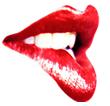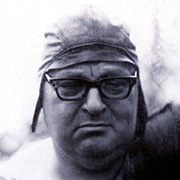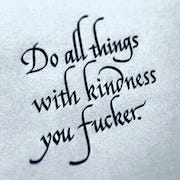|
Barlow posted:I never liked "Crime and Punishment," though that might be partly because I find Dostoyevsky's intense hatred of atheism hard to stomach. I really like Dostoyevsky on converse grounds. It is really interesting to me, as an atheist who was raised atheist and so had little exposure to Christian thought, to explore what it might be like to live and see the world as a devout Russian Orthodox. I found that to be the case much more so in the Brothers Karamazov than Crime and Punishment, though. It's just like how Infinite Jest lets you be a drug addicted tennis champion and Ulysses lets you live a single day in turn-of-the-century Dublin.
|
|
|
|

|
| # ? May 15, 2024 01:58 |
|
mallamp posted:Huh? You'd have to be pretty deep into Dawkins level aggressive atheism to feel that Dostoyevsky has 'intense hatred' of atheism. No, I'm pretty sure Dostoyevsky did indeed hate atheism pretty intensely. Like, read The Demons?
|
|
|
|
Ras Het posted:No, I'm pretty sure Dostoyevsky did indeed hate atheism pretty intensely. Like, read The Demons?
|
|
|
|
Notes was before he got hit by a trolly and found god. Possible that his earlier dalliance fed the fervour he held against atheism.
|
|
|
|
mallamp posted:But it's not simple as that with him... He also planted seeds for existentialism with Notes from Underground, and I'm especially thinking about Brothers Karamazov which explores both 'sides' pretty well. Existentialism and being really religious aren't mutually exclusive just look at Kierkegaard
|
|
|
|
Ras Het posted:Stories are of trivial importance ... Stories are for keeping children sitting still for twenty minutes. lol, what?
|
|
|
|
Dostoevsky's religious sensibilities can be pretty hard to pin down at times. Saying he's "religious" doesn't really quite capture it, at least in the modern sense of the term. The "religiosity" we're familiar with today seems to be used predominantly to define straight-laced Protestants and watered-down Catholics, who wear sweaters, sensible shoes and drive a family Sedan. In many of the Eastern churches, however, there has long been a tradition of incorporating a more fervent, spiritualist kind of worship in the lived faith, which was probably more likely to attract vagrants or lunatics than it was bourgeois, golf-playing fuckwits. Dostoevsky and Tolstoy both share elements of this kind of religious fervour, though obviously Tolstoy was rather more conventional (at least in the modern sense) than Dostoevsky. The latter shared a lot in common with Kierkegaard in that both clearly saw their religion as something necessarily terrifying and unsettling, as much as it was a source of comfort. As for his attitude to atheists, again I think it's complicated. The anarchists / atheists in his books (the terms seemed to be interchangeable then) were always ridiculous assholes, but I still think he found atheism intellectually invigorating, perhaps even troubling. I can remember reading that he was able to feverishly scribble down Ivan's arguments from the Brothers Karamazov in a few days, as they came so naturally to him, but then had to spend months constructing convincing replies for Alyosha in the same sequence. I'm not sure if it was Dostoevsky's intention here, but Alyosha to me always came across as naive, fragile and unconvincing in these parts of the narrative. If Dostoevsky had such an intense hatred of atheism, and this was truly clouding his judgement, I don't think such a reading would be possible.
|
|
|
|
Blurred posted:I'm not sure if it was Dostoevsky's intention here, but Alyosha to me always came across as naive, fragile and unconvincing in these parts of the narrative. This is literally how I pictured Alyosha during the entire novel. 
|
|
|
|
CestMoi posted:Existentialism and being really religious aren't mutually exclusive just look at Kierkegaard
|
|
|
|
Does anyone have a recommendation for a translation of Faust. Is the David Luke translation the best one?
|
|
|
|
Dostoyevsky's writing may be many things, but it's definitely a great study of the dysfunctional individual. Notes from the Underground is a good place to start if his novels are too much. A Disgraceful Affair is another. Ras Het posted:Stories are of trivial importance. I picture your home library and I see all the works of James Joyce.
|
|
|
|
Alternately if you find Notes too airless and one-note, jump into a good translation of one of his later novels.
|
|
|
|
Good science fiction exists: Stanislaw Lem.
|
|
|
|
Shibawanko posted:Good science fiction exists: Stanislaw Lem. Not to mention Robert Sheckley, Theodore Sturgeon, and Jack Vance.
|
|
|
|
Shibawanko posted:Good science fiction exists: Stanislaw Lem. I've read a bunch of him and he's very hit or miss. His "humans exploring alien world" type books (Solaris and Eden are the ones I've read so far) are amazing and capture the potential incomprehensibility of alien life really well but his "robot alien fable" books either lose a lot in translation or are meant to be amusing and the joke is lost on me.
|
|
|
|
novamute posted:are meant to be amusing and the joke is lost on me.
|
|
|
|
Shibawanko posted:Good science fiction exists: Stanislaw Lem. Alfred Bester.
|
|
|
|
novamute posted:I've read a bunch of him and he's very hit or miss. His "humans exploring alien world" type books (Solaris and Eden are the ones I've read so far) are amazing and capture the potential incomprehensibility of alien life really well but his "robot alien fable" books either lose a lot in translation or are meant to be amusing and the joke is lost on me. I've only read Solaris so you might be right. I don't think Solaris is so much about alien life or anything related to space, the actual aesthetic of the world is 50's/60's pulp style on purpose, all with checkerboard walls and silver rockets and stuff, obviously the world itself is superfluous, just a stage to set a story about the unconscious. The descriptions of "solaristics" are just an analogue of the development of science about the human mind (note how at the time of the novel, solaristics is just about cataloging and describing phenomena, rather than theorizing about their meaning, an attitude similar to modern day cognitivism). The reason it's great sci fi is, I guess, because it's not really about space or aliens, since "scientific" topics like that make for pretty stupid novels if they become more than window dressing. All literature is about humanity and human or inhuman feeling, all genre novels make the mistake of being about something else. Shibawanko fucked around with this message at 11:25 on Sep 12, 2014 |
|
|
|
There's actually quite a lot of good sci-fi. Maybe not discussed on SA too much, and usually among the shittier stuff, but there is. Good fantasy is what's hard to find, usually people mention authors that are good compared to other fantasy authors (like Hobb,Martin,Rothfuss) but as entertaining as they are that's like winning special olympics. Literary fantasy.... Le Guin and Mieville (+other New weird), and maybe Gene Wolfe are obvious ones (they're almost scifi though), but after that ... Yeah. Magical realists of course, but they have to call themselves that to avoid being lumped with the medieval bullshit.
mallamp fucked around with this message at 17:26 on Sep 12, 2014 |
|
|
|
Solaris really is genius though, I just flipped through some parts again because this thread reminded me, and it's probably one of the best novels out there.
|
|
|
|
The Memoirs of a Survivor by Doris Lessing is probably the best scifi/speculative fiction book I've ever read, but I've never been able to get any regular scifi nerds to read it. Which I guess is somewhat understandable since there are no spaceships, nothing about space at all actually, no futuristic weapons, no hi tech anything, and the protagonist is an older woman who pretty much just stays in her apartment being afraid of everything for most of the book. But that's too bad because it's absolutely brilliant.
|
|
|
|
I'm currently going through this thread and really appreciate all of the effort people are putting in here. Earlier in the thread, some people were calling others pretentious for championing good books and denigrating pure entertainment books, and I think this Atlantic article about "Good books" is apt. http://www.theatlantic.com/business/archive/2014/09/publishers-gave-away-122951031-books-during-world-war-ii/379893/ KVeezy3 fucked around with this message at 16:55 on Sep 12, 2014 |
|
|
|
mallamp posted:Magical realists of course, but they have to call themselves that to avoid being lumped with the medieval bullshit. Magical realism is pretty different from fantasy imo. Magic realism tends to deal with well fantastical things people believe in/believe and are tinged in the fear/suspicion of the unknown and how it relates to the real world. Sometimes these elements are metaphoricle in nature. Fantasy deals in known imaginary elements in a purely constructed world and has no real connections with the real.
|
|
|
|
If your sole criteria for something being fantasy is magic or something then I can see why you think the magic realists are just trying to shrug off the fantasy label but that's pretty wrong. I read a book that had a woman turn into a tree, another one who came back to life and could extend her face as well as read minds, and a woman who became translucent during childbirth but I would not consider it a fantasy book due to these elements.
|
|
|
|
Stanislaw Lem is great, and if you enjoy Solaris at all I would strongly recommend checking other works of his. I haven't read all his stuff personally, but I've found he's got some incredible ideas and musings in his many short stories. The aforementioned robot fables, The Cyberiad,are indeed brilliant and hilarious. Another good starting point for his humourous works are either volume of Pirx The Pilot, which centre around the life of a working class fellow trying to get by in a strange and terrifying universe. He has a very wry sense of humour, similar to, say, that in Terry Gilliam's Brazil. Other good collections I've read are Imaginary Magniudes, which is a hilarious collection of synopses for fictional books including one that speaks about the history "x-ray pornography" (though the humour might be drier than some can handle), and the Star Diaries collections, which follow the exploits of famed star traveller Ijon Tichy, though while clever, they are often more sombre and don't quite fire on all cylinders like the Pirx stories do, so to speak. Not everything I have personally read is gold, and like most older sci-fi authors there are occasions of uncomfortable sexual attitudes towards women, and it's difficult to place if this is the author's own views slipping through or if they're simply writing a reflection/criticism of the prevailing attitudes of the time. Return From The Stars suffers from this to a degree, though the main character is framed so as to be essentially a caveman in the eyes of the society around him. Also, Memoirs From A Bathtub features a few moments that feel from left field, though the novel suffers from greater problems than that--similar to Terry Gilliam's aforementioned film, Brazil, Memoirs is largely a criticism of overbearing bureaucracy, particularly during the Cold War, but as a result reading it can become as interesting and as tedious as suffering through bureacracy, though perhaps that is the point. Honestly, the framing device used to introduce the titular "memoirs" in the prologue was far more interesting and engaging than the story itself. Anyways, that is all I've got to say at the moment... posting from a phone so this took forever to write... but yeah, Lem is an excellent writer. Very imaginative and clever.
|
|
|
Stravinsky posted:Magical realism is pretty different from fantasy imo. Magic realism tends to deal with well fantastical things people believe in/believe and are tinged in the fear/suspicion of the unknown and how it relates to the real world. Sometimes these elements are metaphoricle in nature. Fantasy deals in known imaginary elements in a purely constructed world and has no real connections with the real. Yeah, the threads we had on Marquez convinced me that Magic Realism really was its own separate movement; it's not just "South American Fantasy." All the "magic" Marquez reflects a cultural viewpoint; it's all "real"in the way that a village rumor is "real" even if it isn't "true" (who can know what the "real" truth was?). Western fantasy relies on the willing suspension of disbelief; Marquez almost ignores your belief or lack thereof and simply asserts his own narrative reality. The authorial voice is approaching the reader from an entirely different direction. Tolkien sits you down and says "I'm going to tell you a story". Marquez comes up to you and tells you about a thing that happened in his village. Hieronymous Alloy fucked around with this message at 20:15 on Sep 12, 2014 |
|
|
|
|
Stravinsky posted:Fantasy deals in known imaginary elements in a purely constructed world and has no real connections with the real. I wouldn't say all fantasy deals with a "purely constructed world". There are authors like Charles deLint and Diana Wynne Jones who write fantasy novels that bring fantasy elements like magic etc into the real world, but their books are not at all what I'd call magical realist. Earwicker fucked around with this message at 22:23 on Sep 12, 2014 |
|
|
|
I just read this book about the origins of fairy tales and it wasn't very good but one interesting point it did make: When the Romantics were exploring fantasy/fairy/myth and coining terms like "secondary worlds" and "willing suspension of disbelief" (Coleridge), they had a pretty simple view of it. Realist fiction dealt with the real world and things that could definitely happen. Secondary world fiction involved things that couldn't happen, whether it be fantasyland101 or just fairies hanging out in the real world. Or like, Rapunzel and Snow White. It often feels to be like magical realism or literature where fantastic poo poo happens is just labeled as such because it's written well. Marketing! I recently finished reading this book called The Book of Strange New Things. I liked it a lot. It's about this preacher who travels to another planet to minister to the natives while his wife write him letters about Earth falling apart. It's a baldly sci-fi premise. But I guess since it's written well and introspective and not D&D porn, it's actually straight literature or 'genre defying'. Sometimes you see interesting exceptions like Coetzee being nominated for a Phillip K Dick award.
|
|
|
|
Earwicker posted:I wouldn't say all fantasy deals with a "purely constructed world". There are authors like Charles deLint and Diana Wynne Jones who write fantasy novels that bring fantasy elements like magic etc into the real world, but their books are not at all what I'd call magical realist. Your right, I was over generalizing
|
|
|
|
ultrachrist posted:Sometimes you see interesting exceptions like Coetzee being nominated for a Phillip K Dick award. Really, for which book? The Childhood of Jesus?
|
|
|
|
I bought What We Talk About When We Talk About Love because of people saying it was good earlier in the thread, and it's good.
|
|
|
|
I did the same with Joyce Carol Oates's The Accursed, and it is also good.
|
|
|
|
I'd try Accursed but since I've disliked almost everything I've read by Oates, I'm pretty hesitant.. I don't understand the appeal of her books. Blonde and them had interesting ideas, but they were way too long. Boatswain posted:Really, for which book? The Childhood of Jesus? mallamp fucked around with this message at 15:15 on Sep 15, 2014 |
|
|
|
I'm not sure if this is the right thread for this, but has anyone read wolf in white van? I've heard good things about it, but I'm still hesitant if it's worth a purchase or not.
|
|
|
|
mallamp posted:I'd try Accursed but since I've disliked almost everything I've read by Oates, I'm pretty hesitant.. I don't understand the appeal of her books. The Accursed is pretty different from anything else I've read from her but if you dislike her because she's too verbose then The Accursed is still not for you. It copies the style of an 19th century Gothic novel and they weren't exactly known for being succinct. Chamberk posted:I did the same with Joyce Carol Oates's The Accursed, and it is also good. I'm pretty excited that people are reading it though. It's pretty unique and totally worth a read. Can't wait to hear what you think about it once you're done.
|
|
|
|
Poutling posted:The Accursed is pretty different from anything else I've read from her but if you dislike her because she's too verbose then The Accursed is still not for you. It copies the style of an 19th century Gothic novel and they weren't exactly known for being succinct.
|
|
|
|
Can we talk a little bit about why people are scared of / fail to properly appreciate literature? And how they might go about rectifying it? I started thinking about this when I read this from a one-star goodreads review of John Updike's Run Rabbit Run: quote:I didn't finish this book. I read 30 or 40 pages and I can't even remember the writing because never before have I hated a character so much. I am someone who never notices the annoying characters in books or movies; mostly, you have to reach a Bella Swan-level of idiocy before I'll start hating you. Rabbit did it within a few pages. I can decide what it was: was it when he berated his wife for being too fat and unkempt after giving birth to and caring for his child? Was it when he kept thinking about how dumb she was? Was it how he pulled that whole, "See you honey, I'm going to the store... forever!" trick, and ran off to sleep with his mistress and mope about his sad excuse for a life? I'll never quite get this attitude - the attitude that just because you don't like (or "can't associate with") the characters in a book that it must make it a bad book. That it is the author's duty to clearly delineate the good and the bad guys so that you know who to sympathise with and who to despise, as though literature should really be experienced as some kind of sporting event. That the complexities of human psychology should be boiled down into convenient archetypes so as to not confuse the reader into cheering for the wrong side. That the faithful characterisation of a defective person must make the author into some kind of unhinged deviant who obviously tacitly supports everything his characters do because wah wah unpleasant people. Worse still is the demand that one must be "entertained" by a book, in the sense that - as readers - our only duty is to sit back passively as the awesomeness of the text attacks us in the face: quote:In the twenty pages I read, one character sits on a gunswivel thing and shaves. He just sits there shaving ... oh yeah, and then wipes his razor on his lover-boy's snot rag. Wowza. What an interesting story this'll be. No attempt is made to make me care about the characters, the prose is weird and makes even trying to entertain James Joyce a joke and overall .... You can probably already guess which book that review comes from, but what exactly was Mr. Isaac Cooper expecting when he picked up a copy of Ulysses? A simple prose narrative, retelling the classic Homeric Odyssey in language the whole family can enjoy, perhaps? A madcap review of a day in the life of that irrepressibly wacky Bloom family? Surely - surely - he must have had some idea that Joyce was drawing on a well of disparate literary allusions in this work and was playing with shifting, elusive (allusive?) prose, and that that is the main thing to be taken from the book, not merely the veneer of plot which holds it all together? What made him think he could pick up this book and just soak in its glory, as one might bathe in the rays of the sun, without putting any effort into the enterprise at all? How can he possibly appreciate a book like this - indeed any work of literature - if he isn't prepared to put in any effort to engage with the text on its own terms? And what makes him think he then has the right to blame the author for all these things when he's made literally no effort at all to understand what the author is trying to do? Can I walk into an advanced mathematics lecture and claim the lecturer has "failed" because he hasn't convinced me of the beauty of Gaussian distribution after 20 minutes? And these seem to be fairly typical critiques, unfortunately. If you read any of the one-star reviews of famous literature on goodreads, you'll get exactly the same anodyne "didn't like the characters / no plot / pretentious" dreck popping up time and time again. Here I want to stress that while aesthetics is not an objective science, and that there are often good reasons to believe that a work of literature is over-rated or of a poor quality, the above criticisms are not among them. Criticising literature for having dislikeable characters or a slow plot is the equivalent of criticising it for not adequately whitening your teeth or for failing to do your taxes: that's just not what literature is about. So what is literature about? What do you have to keep in mind to appreciate it better? Here's a few ideas, drawn from aesthetic theory, that might help to keep in mind the next time you're tempted to flush all seven volumes of ņ la Recherche du Temps Perdu down the toilet in a fit of frustration: 1) Literature is not a means to an end. Like all other works of art, a work of literature stands as a self-contained totality, and cannot be treated as a mere "representation" of something else. In a genre novel, the words exist merely as a means to convey to the reader a representation of some story or narrative, and could be easily substituted for alternatives that would adequately convey the same meaning. I could change every second word in Jurassic Park, for example, and nothing of significance would be lost: the story would remain the same. At the extreme end, pure narrative creations like fairy tales can - and have - been told and retold in a huge variety of ways, because the means of retelling (whether in different kinds of prose, or even in films etc.) are entirely incidental to the "representation" of the story. In literature, the text itself is the end in question, and cannot be paraphrased or reworked without losing something substantial. You can't take Hamlet's soliloquy and reword it as "maybe I'll live, or maybe I'll die... who knows?", because you've immediately lost something. Criticising a work of a literature because it's not telling you a story in the manner you like is a bit like criticising Picasso because his paintings are anatomically incorrect. quote:Personally, I donít see what the big deal is. Armed with a 100-word vocabulary, a meager 123 pages to bore one with, and a character who simply doesnít seem to give much of a drat, Camus somehow shook the world of literature with this inane garbage. I havenít sat down to conduct a thorough analysis, but using some reasonable guesstimation I will say that the average sentence in this book is about eight words long. Iím not asking that every sentence in a book run the length of a page, but the end result when employed by Camus was that either a twelve year old or some sort of retarded robot wrote this. (Cue robot voice) It struck me as strange. The sentences were so short. It was very peculiar. This could be read very fast. I began to read this on the train on my in to work. I finished it on my way back home. 2) Literature stands at a distance. While literature can be highly emotional, engendering emotions of the highest order, it does not do so vicariously. That is, it generally does not endeavour to have you feel the emotions of the characters, to sympathise with them as if you were there with them. It doesn't make you feel sad when the main character is sad, or attempt to thrill you with vivid depictions of a space-battle. Rather, the emotions tend to be secondary - about the characters and their situation rather than with them. We aren't meant to sympathise with Othello, for example, though we can be sympathetic to him - and the rest of the characters - by the outcome. We are meant to feel sadness at the end of the play, even though - so far as I can remember - there are no characters left to share our sadness with. This is why "unlikeable" or "unrelatable" characters often appear in literature: not because the author wishes to endorse their behaviour, but because they are necessary to create situations capable of evoking strong emotional responses in the first place. It's the crushing spectre of fate that makes the tragedy "tragic" afterall, not our disposition towards the characters themselves. quote:NOT a fan, at all! Hamlet is a whiny brat who should try shutting his mouth long enough to actually do something about his situation instead of hovering in an annoying state of indecision and self-doubt! Though I know, logically, that he really is in a pretty awful situation, it's really hard to feel bad for him when all he does is whine. The plain truth is that there are plenty of non-fictional people who have dealt with more difficult things with much less complaining. I just have no sympathy and can't work up any liking for his character. As a result, I don't really care about the story. It did get easier to bear once he started pretending to be crazy, though. 3) Literature is polysemous. In other words, it can have a plurality of meanings: the surface reading is not necessarily the most appropriate one. This isn't merely about subtext - that certain themes or assumptions can be teased from a text if one approaches it under a creative "hermeneutics of suspicion" - but rather that a work of literature can often best be understood as deliberately permitting a plurality of different readings. Sometimes this can be done through under-determination: that is, the exact meaning of the text is left somewhat ambiguous, and the reader is left to fill-in the blanks. Under such circumstances, a wide variety of interpretations can be possible, none of which have been explicitly advocated or proscribed by the text. In other cases, the text is over-determined: particularly common where to text employs allusion or allegory, one cannot understand the text unless one understands that the author has intended for it to call forth (at least) two different meanings at the same time. Such facts require the reader to engage critically with the text, and to be prepared to simultaneously hold at least two competing ideas in one's head at the same moment under the threat of uncertainty. This is good practice for, you know, the vagaries of life. quote:Imagine a book in which you can't understand what the hell any of the characters are thinking. You don't know who the characters are, they are rarely developed (or, if so, the developments are so sudden that it's almost nonsensical), you don't know why they are going to the places they're going to, you don't know why this character is loving that character--none of it makes any sense. The narrator never tells you anything that'll give you an idea of why he's telling his story the way he is. Further imagine that, adding to the confusion, there are no line breaks between completely different scenes; so suddenly they'll be in a completely different time and place and unless you're paying the closest of attention, you won't notice it. It's filled with unfunny, uncreative puns, the "plot" (if there is one) makes little sense--rarely is it clear if the scene you're reading has any significance. Usually, the significance is symbolic at best. Characters are introduced, then dropped, and you'll never know why their behavior was so nonsensical. It's like reading a book in which every character is on drugs. Feel free to add your own.
|
|
|
|
A bit off topic, but I'm interested if there are any serious studies on the way literary criticism evolved within the broader cultural and philosophical movements of the time. It might be my hard-science background speaking but academic criticism and the methodologies used are so nebulous that all I can see is Confirmation Bias: the field with a side dish of data overfitting. Movements change, critical biases with them and I do not trust them enough to tell me what is Art and what is not. As to your question, the reason most people do not read or enjoy "Literature" is because it is presented as something that is almost inaccessible. While many people can appreciate the exercise in scholarship that is tracing the different meanings in the context of x and y and z, most do not have the time or inclination to turn reading a book into a 3 day philosophy binge. I tend to stick with the authors that can keep a reader engaged even on the shallowest level. Very few books lack deeper meaning, and those that do are either junk or designed as such. I call books that are purposefully written to excite critics with little care for the foundation circlejerkers. Eh, /3 AM mini-rant. Not very coherent right now. The Accursed has been gathering dust on my desk since Febrary, but vacation is finally here and I can finally enjoy some gothic goodness. At least I hope it's good. :P
|
|
|
|
Blurred posted:Feel free to add your own. Claire Messud responding to a dumb interviewer asking her why her characters aren't more likeable: quote:ďFor heavenís sake, what kind of question is that? Would you want to be friends with Humbert Humbert? Would you want to be friends with Mickey Sabbath? Saleem Sinai? Hamlet? Krapp? Oedipus? Oscar Wao? Antigone? Raskolnikov? Any of the characters in The Corrections? Any of the characters in Infinite Jest? Any of the characters in anything Pynchon has ever written? Or Martin Amis? Or Orhan Pamuk? Or Alice Munro, for that matter? If youíre reading to find friends, youíre in deep trouble. We read to find life, in all its possibilities. The relevant question isnít ĎIs this a potential friend for me?í but ĎIs this character alive?í Ē Which then most of the dumb literary blogs/magazines got outraged about. See Slate's "I Like Likable Characters" for instance.
|
|
|
|

|
| # ? May 15, 2024 01:58 |
|
Blurred posted:
Not sure that I buy this or else your explanation is off. There are a lot of characters in literature that are strongly sympathetic - Tess of the D'Urbervilles, for instance, or Romeo and Juliet since you're using Shakespeare as an example. Kellanved posted:
I hate when people say that literature should be difficult to read and hard to understand. Yes, there are books like Ulysses but there's also stuff out there like To Kill A Mockingbird. Just because a book is experimental it doesn't make it highbrow or else we'd be reading a lot of bizarro fiction about boogers and calling it high literature.
|
|
|

























